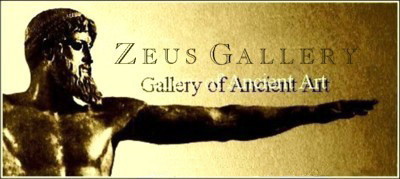|
Ancient Roman Imperial Coin
Philip I NGC Certified Silver Double Denarius Millennial Issue
|
ROMAN EMPIRE
PHILIP I
244-248 AD
MILLENNIAL ISSUE
Continuing the tradition of Claudius and Antoninus Pius before him, the celebration of the Secular Games at the end of every century since the founding of Rome culminated during the reign of Philip I, as the city celebrated her 1,000th anniversary in AD 248. The legends on these issues frequently read Saeculares Augg, and feature a similar iconography from previous games, such as the she-wolf suckling the twins, the various wild beasts paraded through the amphitheater, and a cippus inscribed for the preservation of the memory of these events.
Commemorating the 1000th Anniversary of the founding of Rome.
The 1000th year of Rome ended in April of AD 248 and the celebrations of the millennium were commemorated on special issues, representing, in particular wild animals which were presented during the millennium games, the ludi Saeculares Augustorum.
Philip I celebrated the 1,000th anniversary of Rome with the Saecular Games, and for awhile the magnificent spectacles and athletic contests enabled Romans to forget the economic and military straits the Empire was experiencing. Exotic animals of all kinds, including the Lion shown on the reverse of this scarce double denarius, were paraded through the streets before being slaughtered in the arena in staged "hunts." A series of coins with the legend SAECVLARES AVGG commemorated the event.
Silver Antoninianus / double denarius. Rome mint, 5th officina. 9th emission, Struck 248 AD. c. 4g. 23mm.
Obverse: IMP PHILIPPVS AVG, radiate, draped and cuirassed bust right seen from behind.
Reverse: SAECVLARES AVGG, Antelope walking left; IV in exergue.
Ref. RIC IV 21; RSC 189. NGC Ch XF (Choice Extremely Fine).
Early Christian writers maintain that Philip was the first Christian emperor (& Otacilia the 1st Christian Empress), an assertion which is indeed supported by some of his actions & made more likely as he came from an area where large numbers of Christians were found-born in small Arabian town called Shahba (El-Leja in southwest Syria), 45 miles southeast of Damascus in Trachonitis.
~~~~~~~~~~~~~~~~
OUR GUARANTEE: All illustrations are of the actual item offered. The authenticity of all pieces is fully guaranteed. Any item ever shown otherwise may be returned unaltered for full refund less shipping. If any item purchased is not to your satisfaction you may return it unaltered within 30 days of purchase for a full refund less shipping. We also guarantee absolute discretion and confidentiality in all transactions © Copyright 2017-18 ZEUS GALLERY ID zeus_gallery .

Images are not actual size ~ Please see description for actual measurements.
|
